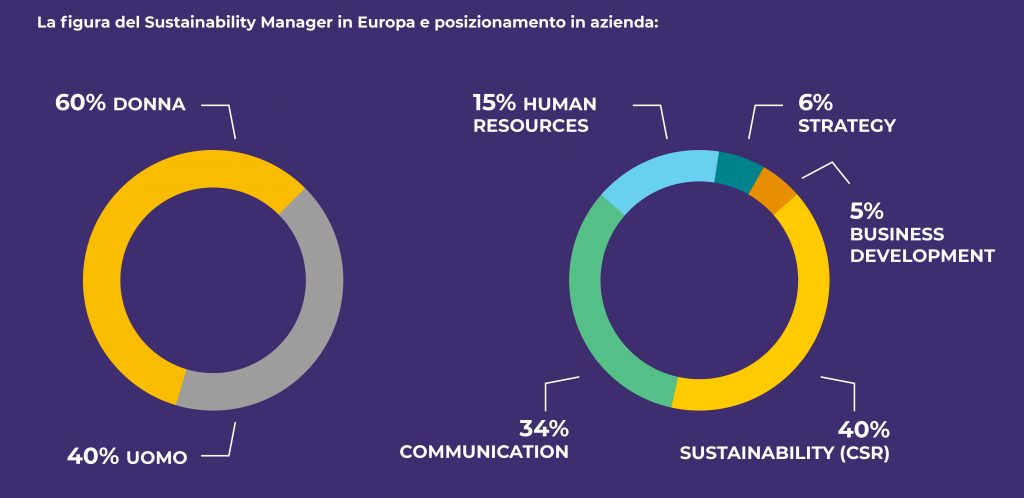Unlike other professional figures, be they traditional parts of the world of work or positions required by law, the role of sustainability managers is – as a relatively recent creation – still being defined in both Italian and European legislation.
The main job of any sustainability manager is to help companies to change to a model where sustainability becomes the main development driver within their organisations.
Sustainability managers need to be able to reconcile standard business operations with innovative activities required by the changing world – and to lead their organisation through these changes. As a result, it’s vital that sustainability managers have a comprehensive understanding of their company and business sector and are able to manage conflict, maintain good relationships with the community and institutions and motivate and develop the workforce, as well as having a solid grasp of economic and legal matters, particularly as regards the environmental sector.

The origins of the sustainability manager
Three years ago, World Business Council for Sustainable Development President and CEO Peter Bakker claimed that the role of the Corporate Social Responsibility (CSR) manager “could take on secondary importance if companies adopt sustainability as their business-wide strategy”.
This was a secondary yet essential effect of Directive 2014/95/EU, a complex piece of legislation which essentially made it compulsory for public companies – or any company with more than 500 employees – to expand their reporting activities to include a non-financial declaration containing information on the environment, social issues, staff, human rights and the right against corruption. This was the moment that Sustainability Reports became part and parcel of company life. Yet it may just end up being much more than that – it could be the start of a new phase for the very concept of corporate sustainability.
Survey
So what does your standard sustainability manager look like in Europe? According to the “Sustainability managers in Europe today” survey, which was carried out in seven European countries (Germany, France, Great Britain, Spain, Italy, Serbia and Turkey), the majority of sustainability managers are female (60%), are aged between 41 and 50 and have built up a solid amount of professional experience, usually between six and 15 years (in 38% of cases).

Sustainability managers usually work with very small teams, with nearly half (47%) of teams consisting of no more than two people and 79% comprising five or less. Great Britain and Germany – two countries that have always been seen as being at the cutting edge of the field – are the exceptions to the rule, boasting teams featuring more than ten people in 23% and 21% of cases respectively. Average pay for sustainability managers is still significantly lower than equivalent figures in other areas, with 79% of the survey participants earning under €100,000 (34% earn less than €50,000 and 45% earn between €50,000 and €100,000).
The responsibilities of the sustainability manager
What areas do sustainability managers work in and what are their future challenges? 53% of sustainability managers are active in the field of reporting, with 27% active in voluntary reporting and 26% in compulsory reporting. Meanwhile, 54% of those surveyed were involved in devising and implementing social and environmental policies. That percentage is likely to rise in the future, given that 62% of the sustainability managers surveyed identified climate change as their biggest challenge for the future. This far outstripped the second-most popular answer of demographic change, selected by “just” 33% of those surveyed.